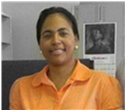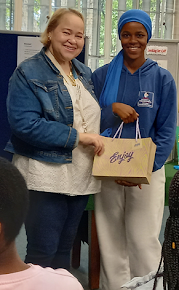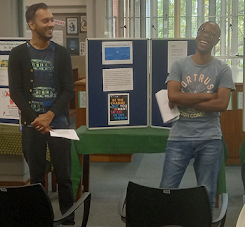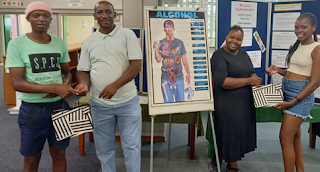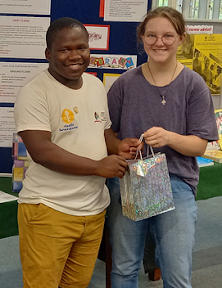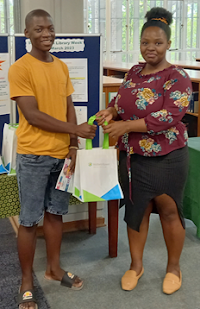

The perfect
hack! Well almost! The Chatbot can do miracles! At least for students and
learners in the classroom. No kidding! ChatGPT has been trained to harvest
relevant data from the vast internet, datasets, websites, ebooks,
scientific publications, scholarly databases, and social media, allowing it to analyse,
calculate, synthesize, and collate language-generated diction that is coherent,
contextually relevant, and often resemblant to the text produced by humans.
ZDNet states
that the AI (artificial intelligence) chatbot model ChatGPT is a conversational language model developed by
OpenAI, based on the Transformer architecture and programmed on extensive
amounts of text data that generate human-like responses, output, and solutions. The real game-changer!
The language
model has been trained to receive data on an input prompt and output
conversational data that is grammatically correct, much like having a
conversation with humans. ChatGPT is trained to augment and generate rational responses
that are syntax and semantically correct. It can decode, deconstruct, merge,
synthesize, and generate results such as computer codes, webpages, essays, emails,
songs, and stories in seconds. The intelligence model can manipulate texts from
datasets and long sentence algorithms to generate paraphrasing at its finest.
According to
Entrepreneur, ChatGPT is a transformer-based neural network that provides
answers and data with human writing patterns. The AI model has been programmed
with a limitless amount of text data to interpret and contextualize relevancy
and generate human-like responses to questions. A neural network is a method in
artificial intelligence that instructs computers to process data in a way that
is inspired by the human brain. It is a type of machine learning process called
deep learning that uses interconnected nodes or neurons in a layered structure
that resembles the human brain. ChatGPT multitasks. The portal has more than
one language function, so it can simultaneously juggle translation, summarize
and answer questions, streaming longer, seamless conversations.
ChatGPT can generate intelligible and comprehensible text,
allowing it to communicate in longer dialogues, conveyance prompts, and
solution-driven transmission. The model has been trained on an immense amount
of conversational data, and has learned how to analyse and generate grammatically
correct text, uses appropriate vocabulary and tone, and is coherent with the
input prompt and the overall conversation mechanism. ChatGPT, like other bot
technologies, works well in mechanical, technical, and e-commerce settings but
cannot transmute humans' critical thinking, cognitive and intellectual domains.
It is not flawless and can deliver confined results.
A no-brainer,
it will short-circuit solutions in almost every sphere and promises to pilot
the shift in the cognitive trajectory of future generations. Organic, logical,
and intellectual capacity suddenly looms as an endangered species. The concern
must be focused on school-going children, learners, and students where this
type of technology will progressively abate their natal cerebral compass,
natural intrinsic trial and error to discovery logic, explorative and
experimental gateways to new and undiscovered frontiers, reasoning capacity and
problem-solving skills. ChatGPT will constrain inherent and intrinsic critical and
analytical thinking.
Higher
education institutions have questioned the effects ChatGPT will have on
teaching and learning, curricula, research, scientific output quality, and
academic integrity. ChatGPT is regarded as disruptive technology as it can be
prompted to write an entire essay and acknowledge sources to reference from its knowledge base. To mitigate
academic integrity, unpacking the strengths, weaknesses, opportunities, and
threats must be examined by academia. This may lead to higher education policies
and protocols regarding the use of ChatGPT. Further, the assessments policy must
be revisited and reworked into curricula that may include oral assessments. In
the future, AI tools may serve as research assistants, conducting virtual
experiments, analysing data, copywriting and editing text, and generating
citations.
ChatGPT can
affect teachers, students, and researchers' innate academic excellence potential
and can condition academia from producing authentic honest investigation, research
output and diction to mediocrity.
Inherently, in
academic libraries, there comes the ChatGPT dashboard. Chatbots are already used in many higher education
institutions and academic libraries, offering 24/7 reference query-related assistance
linked to library databases, resources, and discovery tools. Notably, advanced ChatGPT
combined with advanced data extraction programs such as Covidence, Grammarly, and
Endnote may produce a masterpiece that mimics human excellence in creating a
document. Will Librarian's roles be redefined by ChatGPT? Will overall academia
gradually become enslaved by
the duality of AI and human intelligence? Is ChatGPT a paradox to human
consciousness? Will man once again become Pavlovian, classically conditioned to
new disruptive technologies? Is this the new paradigm shift of learning and discovery?
Or have we become so clouded in the 5th industrial revolution with the
rapid pace and expansion of AI technology that we are missing the master plan of
monetizing disruptive technologies such as ChatGPT as a trade-off for human consciousness?
References:
1.
Open AI: https://openai.com/blog/chatgpt
2.
ChatGPT: What Is It
and How Does It Work?:
https://www.entrepreneur.com/science-technology/chatgpt-what-is-it-and-how-does-it-work/445014
3.
What is ChatGPT and
why does it matter? Here's what you need to know: https://www.zdnet.com/article/what-is-chatgpt-and-why-does-it-matter-heres-everything-you-need-to-know/
4.
Embrace it or reject
it? Academics disagree about ChatGPT: https://www.universityworldnews.com/post.php?story=20230207160059558





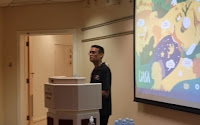
.jpg)















